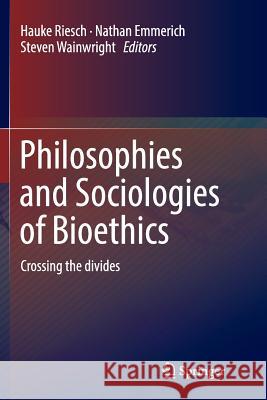Philosophies and Sociologies of Bioethics: Crossing the Divides » książka
topmenu
Philosophies and Sociologies of Bioethics: Crossing the Divides
ISBN-13: 9783030065041 / Angielski / Miękka / 2019 / 173 str.
Kategorie BISAC:
Wydawca:
Springer
Język:
Angielski
ISBN-13:
9783030065041
Rok wydania:
2019
Dostępne języki:
Ilość stron:
173
Waga:
0.27 kg
Wymiary:
23.39 x 15.6 x 0.99
Oprawa:
Miękka
Dodatkowe informacje:
Wydanie ilustrowane











